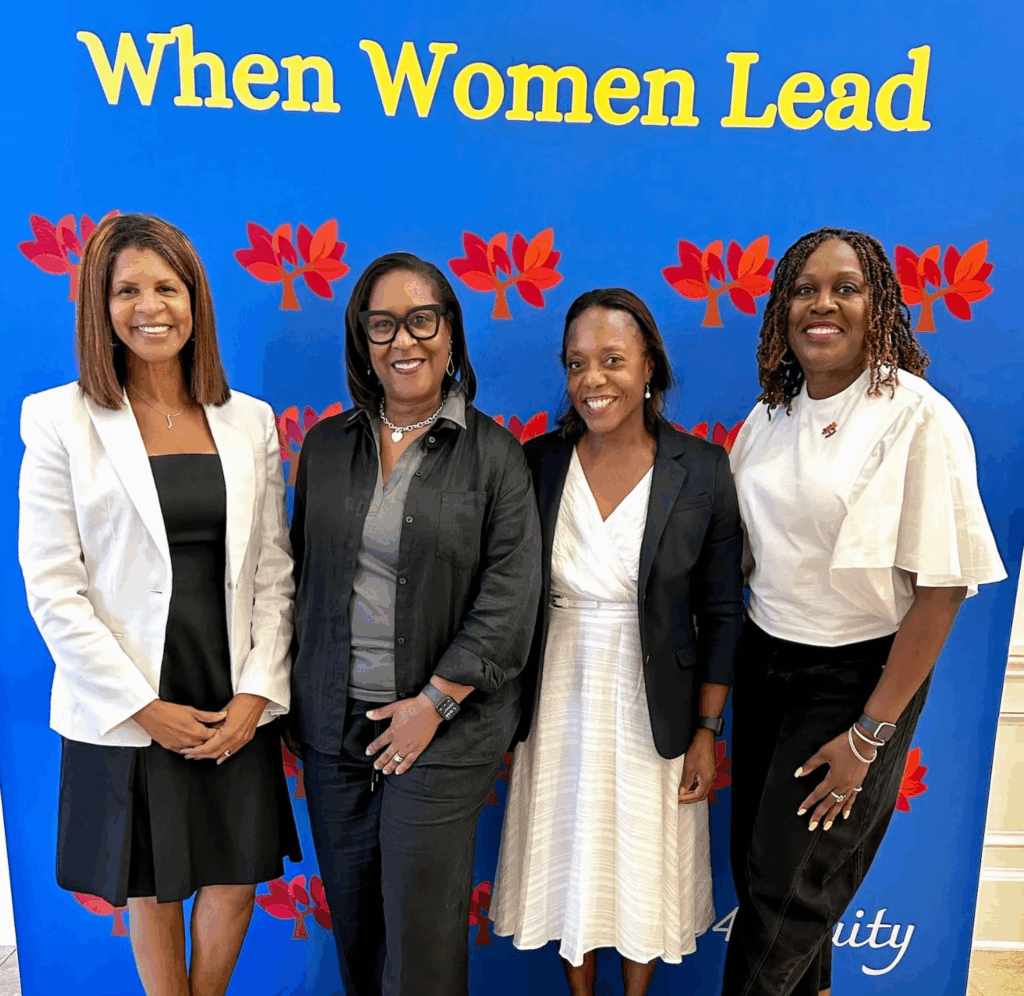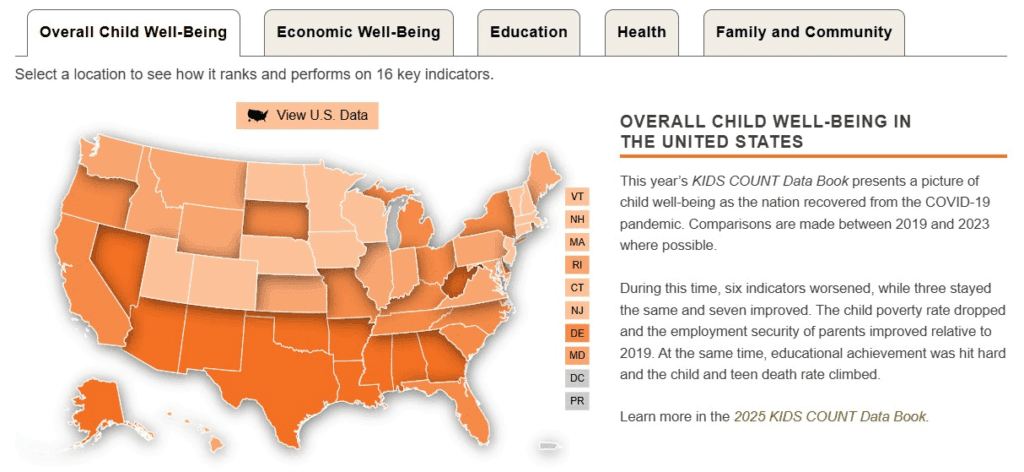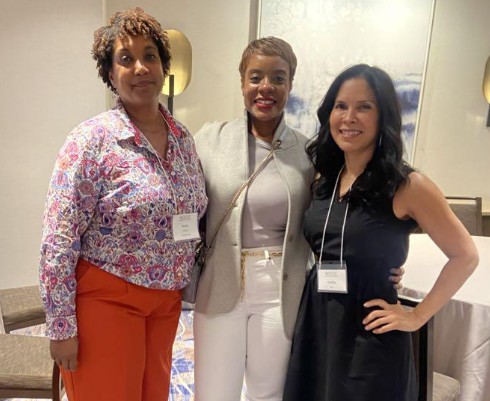Seeking Principals: Apply Now! 2025 WOCEC National District Pathway Fellowship
A 2024 RAND Corporation report surveying 156 districts found inconsistent support for principal development, especially for central office readiness. In response, the WOCEC is launching a new program to strengthen leadership pipelines and prepare principals for district-level roles.
Applications are now open for the WOCEC’s 2025 National District Pathway Fellowship Program—a unique, five-month leadership experience designed by and for women of color principals across the country. If you are a school leader with five or more years of experience and are considering a district-level leadership role in the future, this fellowship is for you.
It brings together a select cohort of school leaders and provides:
- Executive coaching from seasoned experts who understand the unique challenges of leadership
- Professional development tailored to real-world demands, including:
- Strategic communications
- Navigating district and board relations
- Budgeting and resource allocation
- Conflict management
- Self-care and sustainability
- A powerful network of sister-leaders who inspire, support, and grow together
The program includes five virtual sessions and is designed to fit the schedules of working professionals. Cost is $799.
2025 Fellowship Cohort Dates (virtual, 3:00–5:30 pm ET):
- September 18, 2025
- October 2, 2025
- October 23, 2025
- November 13, 2025
- January 15, 2026
👉 Click here to apply and join a transformative network of women changing the face of school leadership.
Superintendents and other district leaders: You can recommend a principal by filling out this form. Thank you!
The WOCEC and Vanderbilt University

Over the last several months, the WOCEC has been working closely with a trio of doctoral students from Vanderbilt University’s Peabody College of Education and Human Development, as they develop a research question related to women of color in school and district leadership roles and undertake that research to both support their own doctoral-related studies and the research base around organizations such as the WOCEC.
“We are so glad that this team from Vanderbilt has chosen the WOCEC for this work,” said WOCEC president Dr. Stephanie Wood-Garnett. “While there are studies and papers that document the critical need for and importance of diverse leadership in schools and school districts, not enough has been written about organizations such as the WOCEC and the role they play in promoting and supporting women of color leaders.”
Tracey Robinson, one of the doctoral students and a director for learning design and development at the Association for American Medical Colleges, shared, “We have to offer a counter-narrative to deficit-based approaches by highlighting the assets women of color bring to leadership. Organizations like the WOCEC illuminate how these leaders navigate professional risks and bring valuable knowledge and skills that make them exceptional leaders through their own community cultural wealth assets such as familial, social, and resistant, to name a few. We need this reminder now more than ever.”
Watch for an upcoming newsletter article this fall on what the Vanderbitl team finds and shares.
The WOCEC at Voice4Equity’s When Women Lead Conference in Charleston, SC

“When women come together in a supportive and inclusive environment, we can share our experiences, insights, and knowldge that might not be as easily shared in other settings.” Dr. Talisa Dixon, former superintendent of Columbus City (OH) Schools and WOCEC executive coach.
This week several WOCEC team members attended the When Women Lead conference in Charleston, sponsored by the organization Voice4Equity. Founded by Dr. Christina Kishimoto in 2021, it is an organization devoted to advocating for equity, increasing the number of women superintendents of color, and seeking to shatter long-standing systemic biases for good. Through strategic leadership building, policy implementation, and community outreach programs, Voice4Equity works toward making tangible improvements in education reform on both a national and international scale.
WOCEC Executive Coach Dr. Lorna Lewis to Retire After 47 Years in K-12

WOCEC executive coach Dr. Lorna Lewis is retiring at the end of June, after 47 years in the K-12 world. We want to say thank you and congrats to this amazing woman and leader.
Born in Kingston, Jamaica, Dr. Lewis began her career in education after immigrating to New York as a teenager. She earned a BS in physics at age 16, followed by three master’s degrees and an EdD in science education from Columbia University’s Teachers College. Starting out as a math and physics teacher at the Collegiate School in Manhattan, she advanced to roles including science director and deputy superintendent in several Long Island school districts, breaking barriers as the first Black female superintendent in East Williston School District, Plainview-Old Bethpage Central School District, and, since 2020, the Malverne Union Free School District. In 2018, she became the first woman of color elected president of the New York State Council of School Superintendents (NYCOSS). A passionate advocate for equity, inclusion, and educational excellence, Dr. Lewis serves on the ERASE Racism board, co-chairs NYCOSS’s curriculum committee, and has presented widely on de-tracking, data-driven instruction, and social-emotional learning. Her leadership has earned her numerous honors, including a NAACP Legacy Award and recognition from the Anti-Defamation League, the Korean-American Parents Association, and Phi Delta Kappa.
Thank you, Dr. Lewis, for your unwavering dedication to equity, excellence, and justice across more than four decades of transformative leadership. Your vision, courage, and tireless advocacy have opened doors for countless students and inspired educators across New York and beyond. Congrats on your well-deserved retirement!
2025’s Kids Count Data Book

The Anne E. Casey Foundation released its Kids Count Data Book on June 9, and here are its high level findings:
- There were reductions in childhood poverty, children living in high-poverty areas, and teen births.
- There were increases in health insurance coverage, secure parental employment, heads of households with at least a high school diploma, and on-time high school graduation rates.
- More teens were not attending school and not working, and the death rate for children and teens increased.
- The states New Hampshire, Vermont, and Massachusetts ranked in the top three for overall child well-being, while Mississippi, Louisiana, and New Mexico sat at the bottom.

